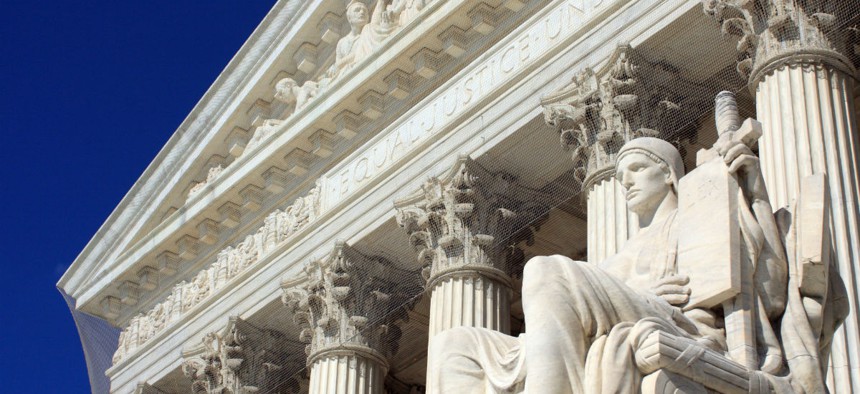
By J Main / Shutterstock.com
Trump Administration Fights for Federal Retirees at Supreme Court
Justice Department offers support to former U.S. Marshals Service employee in case that could set widespread precedent.
The Trump administration is standing up for federal retirees in a case before the Supreme Court, arguing they should not face disparate tax treatment compared to their state counterparts.
The case involves a precedent known as intergovernmental tax immunity and the 1939 Public Salary Tax Act, which dictates how states can tax government workers. In Dawson v. Steager, a U.S. Marshals Service retiree is suing the state of West Virginia for making the annuities of certain state law enforcement officers tax free, but not granting him the same benefit.
The Justice Department this week filed an amicus curiae, or friend of the court brief, in support of James Dawson, the former U.S. Marshals Service employee. Federal law, members of the solicitor general’s office and other department attorneys wrote, prohibits West Virginia from providing tax exemptions for its own employees without also extending them to federal workers.
“The United States has a substantial interest in ensuring that its employees and retirees receive equitable tax treatment from the states,” the Justice officials wrote. A state violates the requirement that it enforce tax laws without discrimination “when it imposes more burdensome taxation on those who deal with the federal government (including federal retirees), because of their federal status, than on similarly situated persons who deal with the state.”
There is no substantial difference between the West Virginia state law enforcement officers who receive their annuities tax free and Dawson, the Trump administration said. Ultimately, the officials wrote, Dawson suffered discrimination because of “the federal source of his pay.”
Dawson won an initial suit in a West Virginia state court, but the state’s Supreme Court of Appeals reversed the decision. The state did not intend to place federal employees at a disadvantage, and the scope of people benefiting from the state's tax laws is narrow, the appeals court said.
While Dawson concerns only one law enforcement retiree in a single state, advocates for federal retirees said the outcome will have a much wider impact.
“The Supreme Court’s ruling in Dawson v. Steager will determine whether federal retirees throughout the country will be subject to a different set of state tax rules than their state government counterparts,” said Richard Thissen, president of the National Active and Retired Federal Employees Association. He added that state governments cannot be given free rein to start carving out federal workers from tax exemptions because if they are, “More and more states will follow the lead of West Virginia, and one exemption after another will be granted to differing classes of state government retirees.”
The precedent that federal retirees and their spouses be treated the same as state government retirees, Thissen added, would “face a death by a thousand cuts.”
NARFE also filed an amicus curiae brief this week on Dawson’s behalf in the Supreme Court case. The Trump administration’s filing was a rare display of support on behalf of federal retirees, as the White House has repeatedly put forward proposals to slash their benefits. The administration has said it will push to do away with federal employees’ pensions altogether.







